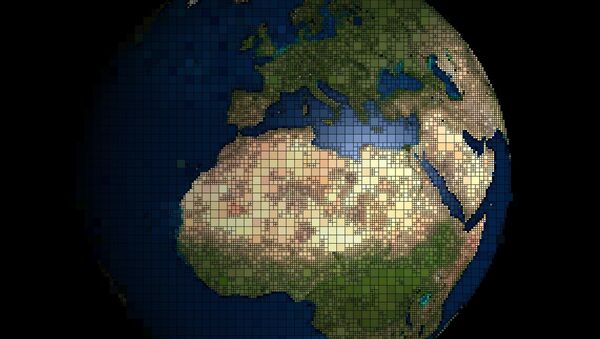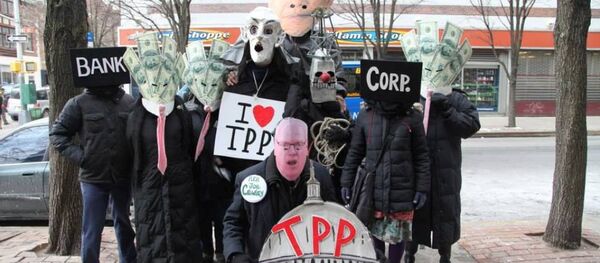Following the release of the previously secret text by the New Zealand Foreign Ministry, critics have taken aim at the TPP fine print, with many raising concerns about the impact the deal will have on the environment, health, labor rights and the freedom of speech.
Full Text of #TPP Released to Public… And It's Horrible — https://t.co/CPyfEBmYA1 #stopTPP
— Global Justice Now (@GlobalJusticeUK) November 5, 2015
Among the major concerns is the protection of the environment under TPP regulations.
The #TPP fails to mention 'climate change' in the Environment Chapter https://t.co/Zufbn2MCl2 pic.twitter.com/1PgbwAqrwf
— WikiLeaks (@wikileaks) November 5, 2015
After assessing the text, Matthew Rimmer, intellectual property law professor at Queensland University of Technology in Australia, told public broadcaster ABC that the chapter on environmental regulations appears to be worryingly thin in detail.
"It seems to me remarkable that the environmental chapter in the Trans-Pacific Partnership doesn't even mention the phrase climate change. It's kind of like Voldemort in the Harry Potter series, it's a taboo phrase in the Trans-Pacific Partnership."
The revelations have raised concerns that environmental protection measures may be relaxed under the TPP agreement, with fears multinational corporations would not required to adhere to existing environmental standards, which could risk fueling climate change.
Welcome weekly #StopTPP TwitterStorm! "How #TPP Harms Environment", JOIN US!! Tweets: https://t.co/LxvjelQ4Ua #NoTPP pic.twitter.com/4h3IwVjrM1
— Dr Bill Honigman (@DrBillH) October 28, 2015
Fears Over Workers' Rights, Freedom of Speech
Professor Rimmer also raised concerns over the harsh penalties imposed for disclosing trade secrets, with concerns over a lack of protection "particularly in relation to journalists and whistleblowers."
"I'd be very concerned about how those measures might impact on freedom of speech and freedom of the press."
This has led to fears that whistleblowers and the media will be unwilling to uncover potential state wrongdoings, which critics say could threaten governmental accountability.
'There's a burgeoning industry in funding 'corporate court' cases, with asset recovery built in' @RuthBergan Total vultures #NoTTIP
— Global Justice Now (@GlobalJusticeUK) November 5, 2015
Nick Dearden, director of civil rights group Global Justice Now, said the text revealed plans to grant multinational corporations unprecedented power over employees, with fears workers' rights may be washed away and jobs in many countries relocated offshore.
"The TPP is a disaster for jobs, and environment and our democracy. It is the latest stage in the corporate capture of our society.
"TPP has less to do with selling more goods, than with rewriting the rules of the global economy is favor of big business. Like the North American Free Trade Agreement (NAFTA), 20 years ago, it will be very good for the very richest, and a disaster for everything and everyone else. NAFTA entrenched inequality and caused massive job losses in the USA, and TPP is a turbo-charged NAFTA."
Despite the criticism, political figures from the 12 countries involved in TPP negotiations say the unprecedented deal will benefit the public, as it will open up markets and allow businesses to increase market competition.
After more than five years of negotiations, the trade ministers of Australia, Brunei, Canada, Chile, Japan, Mexico, Malaysia, New Zealand, Peru, Singapore, the USA and Vietnam signed the TPP last month.
However, the agreement is not a done deal just yet, as it must be ratified by all 12 respective parliaments, with some activists groups and political parties expressing concern over the fine print of the deal.



